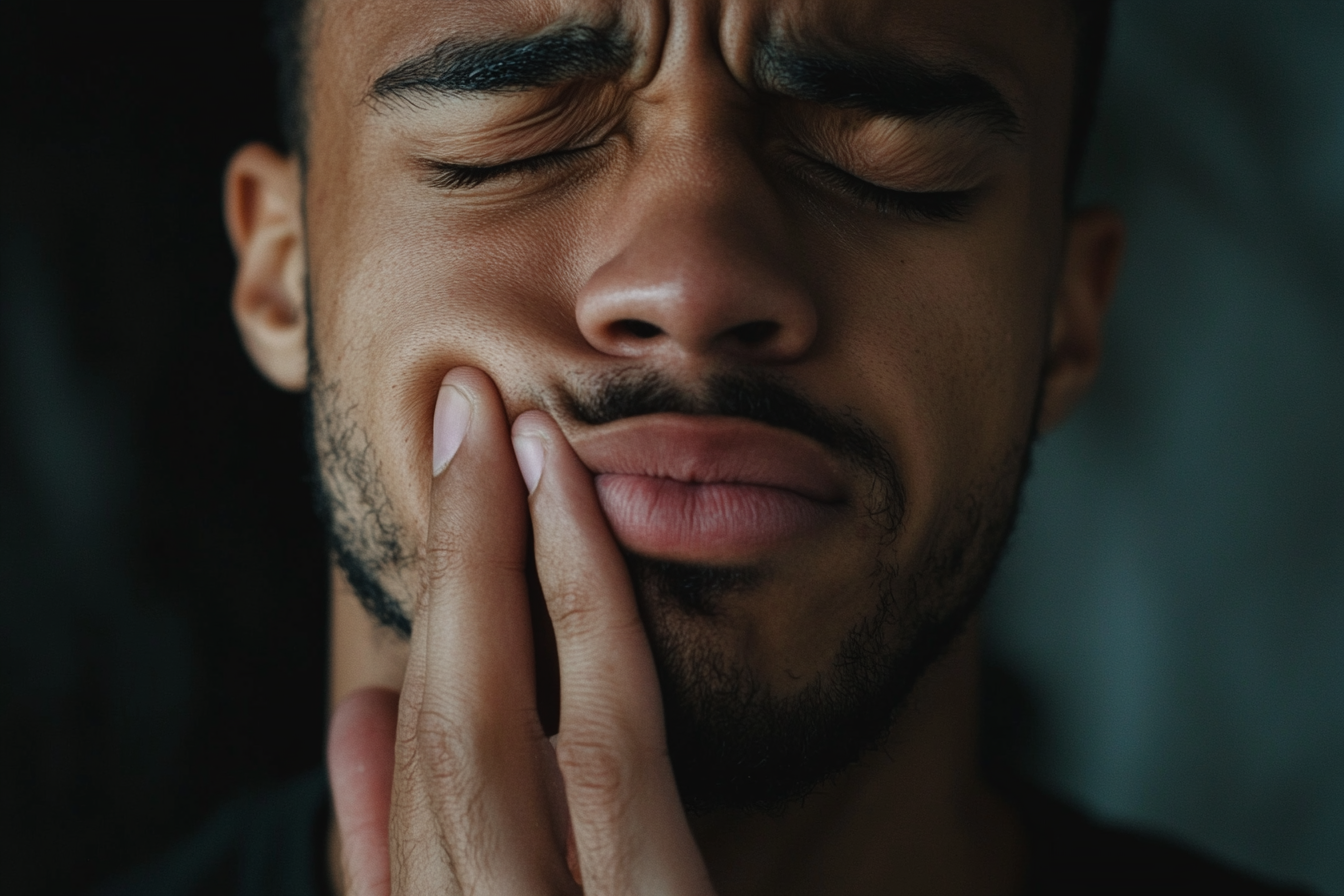- Apply Ice: Reduces swelling and pain during the first 24-48 hours.
- Rest and Elevation: Promotes healing; keep your head elevated.
- Maintain Oral Hygiene: Saltwater rinses and gentle brushing.
- Eat Soft Foods: Avoid chewing hard foods; focus on smoothies, soups, and mashed foods.
- Avoid Straws: Sucking motions can dislodge the healing clot, leading to a dry socket.
- Stay Hydrated: Drink water and avoid alcohol and sugary drinks.
Wisdom Teeth Recovery Tips
Apply Ice
Reduces swelling and pain during the first 24-48 hours. Apply for 20 minutes on, 20 minutes off.
Rest and Elevate
Keep your head elevated while resting to promote healing and reduce swelling.
Oral Hygiene
Use saltwater rinses and brush gently to maintain oral hygiene and prevent infection.
Eat Soft Foods
Focus on smoothies, soups, and mashed foods. Avoid hard, crunchy, or spicy foods.
Avoid Straws
Sucking motions can dislodge the healing clot, leading to a dry socket. Drink directly from a glass.
Stay Hydrated
Drink plenty of water. Avoid alcohol, sugary drinks, and hot beverages.
When to Call Your Dentist
Contact your dentist if you experience excessive bleeding after 24 hours, severe pain that doesn’t subside with medication, worsening swelling after 48 hours, or signs of infection such as fever.
Remember: Follow your dentist’s instructions carefully for a smooth recovery!
Be patient with your healing process and avoid activities that could disrupt the healing site.
Introduction
Recovering from wisdom tooth removal can be uncomfortable, but following these essential steps can speed up your healing process and reduce the risk of complications.
How to Speed Up Wisdom Tooth Recovery
Wisdom teeth extraction is a common oral surgery, but recovery can be problematic for many. Fortunately, with the proper care and precautions, you can quickly accelerate your recovery and return to normal.
1. Apply Ice to Reduce swelling

Applying ice to your face immediately after surgery helps reduce swelling. Cold compresses, tightens blood vessels, and minimizes inflammation.
How to Use Ice Effectively:
- Apply an ice pack for 20 minutes, then remove it after 20 minutes.
- Avoid placing ice directly on your skin—wrap it in a cloth or use a cold compress.
- Continue this for 24-48 hours to minimize swelling and discomfort.
Tip: Use warm compresses after 48 hours to ease jaw stiffness.
2. Photobiomodulation Therapy

Photobiomodulation, also known as red light therapy or low-level laser therapy (LLLT), is an advanced treatment that significantly reduces pain and swelling after wisdom tooth extraction. It works by stimulating the cells in the affected area, encouraging faster healing and reducing inflammation.
Benefits of Photobiomodulation:
- Reduces jaw stiffness (trismus).
- Minimizes swelling.
- Speeds up the recovery of soft tissue.
- Often used immediately after surgery for best results.
More:-
- How Much Does It Cost to Bond Teeth?
- How to Sleep After Wisdom Teeth Removal
- How to Tighten a Loose Tooth at Home
3. Rest is Key

Your body needs time to heal, and rest is crucial. Make sure to limit physical activity, especially during the first 48 hours. Physical activity can delay healing and cause complications like dry sockets.
How to Sleep Post-Surgery:
- Keep your head elevated using a wedge pillow or stacking regular pillows.
- Keep the healing area free of pressure by sleeping on your back.
- Avoid lying flat, as it can increase blood flow to the area and cause throbbing pain.
4. Massage Techniques for Jaw Relief

During wisdom teeth extraction, your mouth is kept open for an extended period, often resulting in soreness and tightness in the jaw muscles.
Simple Jaw Massage Steps:
- Massage your jaw using your fingertips in a circular motion.
- Focus on the masseter muscle, which helps you chew.
- Ensure the extraction site is not disturbed.
5. Maintain Proper Oral Hygiene
Even though your mouth will be sore, maintaining good oral hygiene is essential to prevent infection.
Saltwater Rinses

Start rinsing with salt water the day after surgery. Make a saltwater rinse by mixing ½ teaspoon of salt with 8 ounces of warm water. This helps keep the extraction site clean and reduces the risk of infection.
Tips for Brushing and Flossing:
- Brush gently around the extraction site.
- Regular mouthwash can irritate wounds, so avoid it.
- Floss carefully, avoiding the area near extraction.
6. Eat Soft Foods

Choosing the right foods can significantly impact your recovery. Focus on soft foods that require little to no chewing.
Best Foods for Wisdom Tooth Recovery:
| Food Options | Benefits |
|---|---|
| Smoothies | Easy to consume, rich in vitamins |
| Mashed Potatoes | Filling and soft on the extraction site |
| Scrambled Eggs | High in protein, soft texture |
| Applesauce | Gentle on the mouth, rich in nutrients |
| Blended Soups | Hydrating and easy to consume |
Foods to Avoid:
- Typically, crunchy foods like chips or nuts.
- Spicy foods may irritate the wound.
- Sugary foods can delay healing.
7. Foods That Boost Healing

Expanding the food section to include healing foods that promote faster recovery and nutrients crucial for healing.
Nutrient-Rich Foods for Recovery:
| Food | Key Nutrient | Benefit |
|---|---|---|
| Bone Broth | Collagen, Protein | Supports tissue regeneration |
| Smoothies with Greens | Vitamin A, C | Boosts immune system and healing |
| Soft Salmon | Omega-3 Fatty Acids | Reduces inflammation |
| Avocados | Healthy Fats | Soothes sore tissue |
8. Avoid Using Straws

After wisdom teeth removal, it’s wise to avoid straws. Sucking motions can disturb the clot at the extraction site, resulting in a dry socket. Drink directly from a glass to prevent complications.
9. Stay Hydrated

Proper hydration is essential for recovery, but some drinks should be avoided. Water is your most effective choice, and you should avoid alcohol, soda, and caffeinated beverages, which can dehydrate you or interfere with healing.
Recommended Drinks:
- Water: Stay hydrated without complications.
- Coconut Water: Helps replenish electrolytes lost after surgery.
- Herbal Teas: Soothing and hydrating, but avoid hot temperatures.
More:-
- How to Get Food Out of Wisdom Tooth Hole
- How to Fix a Cracked Tooth Naturally
- How to Relieve Pain from Dental Implant
10. Role of Supplements in Recovery

Certain supplements can promote faster recovery by reducing inflammation and improving tissue healing. Adding this section can give readers more actionable tips.
Recommended Supplements:
- Bromelain: A natural anti-inflammatory enzyme found in pineapples, helpful in reducing post-surgery swelling.
- Vitamin C: Essential for collagen production, which helps in tissue repair.
- Quercetin: A powerful antioxidant that reduces inflammation.
- Zinc: Promotes tissue healing and helps fight off infections.
11. Importance of Hydration for Healing

Hydration is essential during recovery, especially after oral surgery. Expanding on this topic, you could discuss the role of electrolytes and maintaining a balanced pH for healing.
Best Drinks to Stay Hydrated:
- Coconut Water: Replenishes lost electrolytes and hydrates effectively.
- Herbal Teas: Anti-inflammatory and soothing, especially chamomile or ginger tea.
- Electrolyte Solutions: Useful after surgery, especially if you’ve experienced nausea or vomiting.
12. Follow Your Pain Management Plan

Managing post-surgery pain is critical for a smooth recovery. Your dentist will likely prescribe pain medications or recommend over-the-counter options like ibuprofen.
Pain Management Tips:
- Take medications as prescribed by your dentist.
- Don’t wait for the pain to escalate before taking your medication.
- Avoid exceeding the recommended dose of any pain reliever.
Warning: Be cautious with opioid painkillers, as they can have side effects like nausea and vomiting.
13. Elevate Your Head

Keeping your head elevated helps to reduce swelling and prevent blood from pooling at the extraction site. Use pillows to keep your upper body at a 45-degree angle while you sleep or rest during the day.
Benefits of Elevation:
- Reduces throbbing pain.
- Minimizes swelling around the extraction site.
- Helps you rest more comfortably.
14. Avoid Smoking and Alcohol

Smoking and alcohol can delay your healing and increase the risk of complications. Smoking can lead to dry sockets, while alcohol can interfere with pain medication and dehydrate your body.
Why to Avoid:
- Smoking: Slows healing and increases dry socket risk.
- Alcohol: Can interfere with pain medication and slow down recovery.
15. Apply Gauze and Pressure

After your surgery, you’ll likely experience some bleeding. Apply a gauze pad to the extraction site and gently bite to apply pressure. This helps the blood clot form and prevents excessive bleeding.
How to Use Gauze:
- After 30-45 minutes, replace the gauze.
- You can substitute a tea bag for gauze if you run out – the tannins in tea help blood clot.
16. Prevent Dry Socket

A dry socket is one of the most painful complications post-surgery, which occurs when the blood clot at the extraction site is dislodged. Preventing dry sockets is critical to smooth recovery.
How to Prevent Dry Socket:
- Avoid straws.
- Don’t smoke or use tobacco products.
- Avoid spitting forcefully or rinsing vigorously.
- To avoid disrupting the clot, eat soft foods.
17. When to Call Your Dentist

While minor discomfort and swelling are common, specific symptoms require immediate attention.
Symptoms to Watch For:
- Excessive bleeding after 24 hours.
- Severe pain that does not subside with medication.
- Swelling that worsens after 48 hours.
- Signs of infection, such as fever or oozing from the wound.
18. Emotional and Psychological Aspects of Recovery

Patients often experience anxiety before and after surgery. Including a section on managing stress and emotional well-being could be valuable for readers.
Coping Strategies:
- Mindfulness and Meditation: Help reduce stress and promote relaxation.
- Deep Breathing Exercises: To calm nerves and manage post-surgical anxiety.
- Light Activities: Gentle walks or reading can help take the mind off discomfort.
Conclusion
Following these steps can speed up your wisdom teeth recovery and minimize discomfort. Remember to rest, stay hydrated, and follow your dentist’s instructions for a quick and painless recovery.



